If you’ve spent any time on the slopes, you’re familiar with this burning question! You’ve probably heard some impassioned arguments either way. So, what’s the answer?
It’s mostly subjective. At the root they’re a very similar sport, but the cultures are very different and there are some clear advantages and disadvantages to both.
However, while it’s mostly subjective, there are studies pointing in the direction of skiing being considered a more relaxed, more enjoyable sport.
Is there validity to them? Let’s find out.
Table of Contents
The Pros and Cons of Skiing
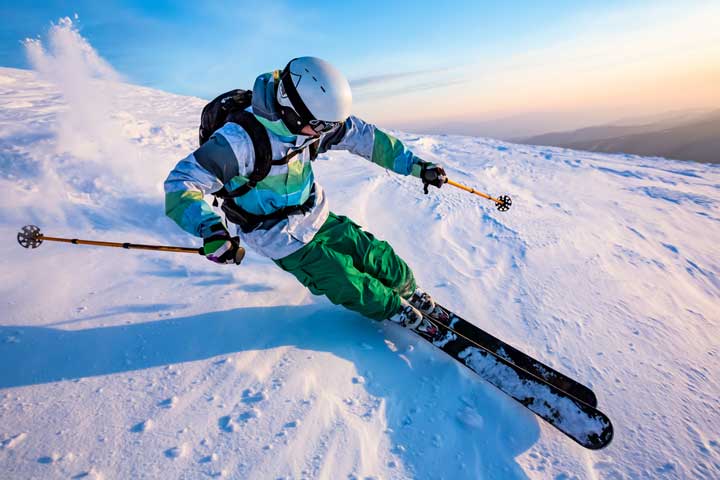
Pros
- Easier to mount lifts
- Faster
- Can manually traverse flats
- Wipeouts are often less painful
- More edge grip
- Poles to catch your balance
Cons
- Expensive gear
- Hard shell boots are a pain to put on and slow to walk in
- Leg injuries are much more common
- Poles and skis are cumbersome
The Pros and Cons of Snowboarding
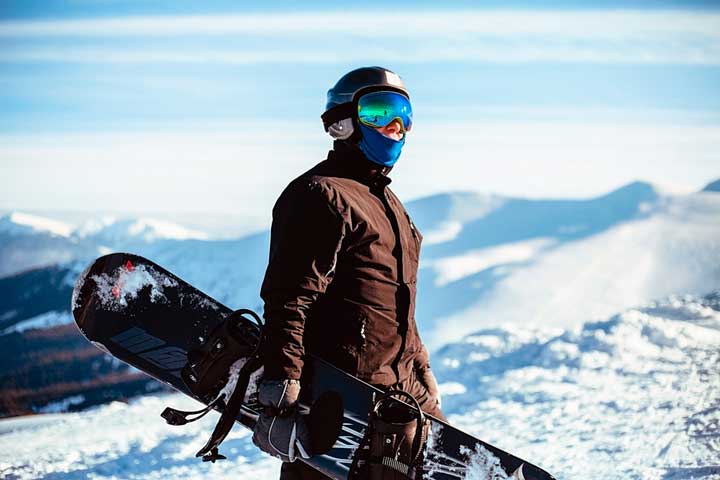
Pros
- Cheaper gear
- Easier to carry around
- Perform better on powder
- Easier to get up after falling
- Easier to pull off tricks
Cons
- Awkward to traverse at walking speed
- Mounting lifts is more difficult
- Slower
- Wrist and arm injuries are common
- Steeper learning curve
Skiing and Snowboarding: How Do They Differ?
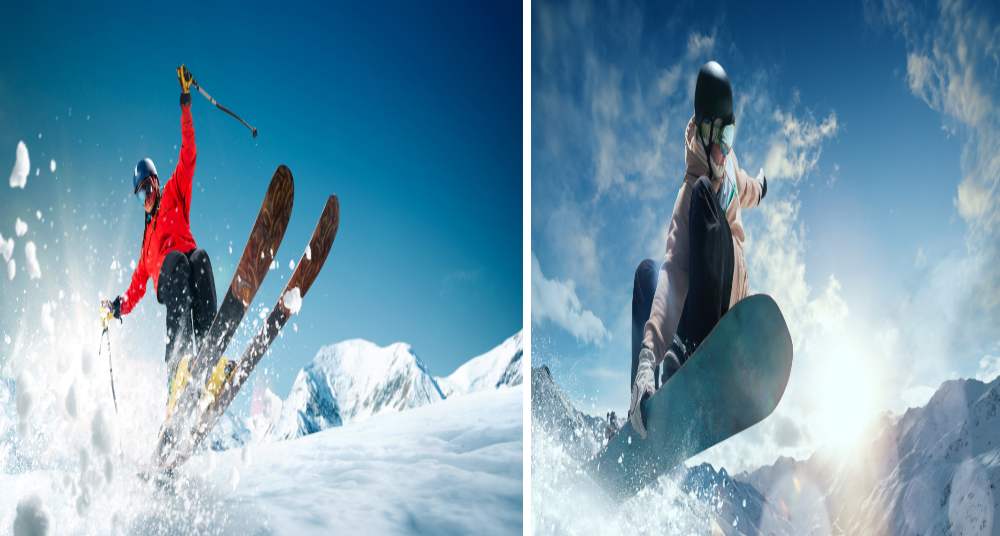
1. The chances of falling
Skiing
It’s relatively straightforward to maintain your balance standing up normally. Plus having two skis and a pair of poles to shift the balance and apply force when needed is extremely handy.
Snowboarding
Snowboards are arguably more difficult to learn. If you start to lose your balance you’re likely to fall unless you have good control of the board, to the point where you can throw it around under you to stay upright.
Winner
Skiing wins this round since it’s more beginner-friendly.
2. Dangers
Skiing
You have an advantage if you can already do the splits. If you aren’t quite that flexible, you risk nasty muscle pulls in the groin and twisted knees.
When traveling at high speeds, you generate a lot of force on the skis depending on their angle to the snow. Lose control of your skis and your legs will be pulled away from each other very fast.
Other than leg injuries, wear a helmet. There are rocks on mountains, and skiing comes with all the hazards of head trauma.
Snowboarding
Similarly, snowboarding off-piste is hazardous. Always wear a helmet. Unlike skis, you’re more likely to hurt your wrists or hands on the snowboard. Whenever you fall over, you’ll put your hands out reflexively. At higher speeds, you can easily break them on impact.
Winner
The hazards themselves are essentially the same.
3. Wearing a backpack while skiing or snowboarding
Skiing
Wearing a backpack while skiing is arguably helpful. It will shift your center of mass further back, giving you good balance at higher speeds. Plus, if you fall, there’s a cushion!
Snowboarding
Wearing a backpack on a snowboard will take some getting used to. Since you’re balancing perpendicular to your board, having more weight over one side will make riding more awkward.
Winner
Having a lower center of mass further back is actually helpful when skiing since it makes it easier to maneuver and gives you more stability at high speeds.
4. Versatility
Skiing
Skis have the low friction for cross-country and the maneuverability for tricks and racing.
Snowboarding
Snowboards are notorious for being unable to traverse long flats on their own. For the best experience, you need to be on steep inclines tending downwards until you get to the bottom. Unless you brought poles, you’ll need somebody to drag you over any flats or up any shallow inclines.
Winner
Skis will get you anywhere as long as you have the cardio to push yourself around!
5. Split-boarding
Many of the weaknesses of snowboards compared to skis can be mitigated by… turning the snowboard into a pair of skis! Split-boards are two skis connected to form a snowboard. Ski on flats, snowboard on runs.
6. Speed
Skiing
Skis have less friction between them and the snow, making them much faster than snowboards.
Snowboarding
More friction and often a heavier weight makes snowboards considerably slower than skis.
Winner
Skis are significantly faster than snowboards. If speed is your thing, get on some skis!
7. Grip
Skiing
Skis have sharper metal edges for improved edge grip, especially handy when trying to pull a sharp turn or brake hard at top speed.
Snowboarding
Snowboards are essentially the same in that grip is derived from sharp (often stainless steel) metal edges driven into the snow.
Winner
Skis arguably have more edge grip considering there are two edges
8. Traverse vs off-piste performance
Skiing
Skis excel on icy or hard-packed snow and lose performance when they’re taken over powder.
Snowboards
Snowboards, on the other hand, prefer to glide over powder. Friction plays more of a role when traveling over packed snow, slowing you down.
Winner
It depends where you find yourself more often. Stick to what your gear is best on.
9. Effort
Skiing
When skiing, you can push yourself around manually using your poles, making traveling across flats and to/from hilltops much easier. Also, skis take almost no momentum to start cruising over flats.
Snowboards
Snowboarders have a few ways of getting around before they find a good run. Some shuffle, some hop, but most have to get dragged around by friends. However, when walking around, snowboards are easy to pick up and carry around.
Winner
Skis are easy to cruise around on, but they’ll put a lot of strain on your legs and walking around with them is a hassle. Snowboards are very low effort to use once you’ve got the hang of them. In general, it depends on where you are and what you’re doing.
10. Comfort
Skiing
If you need to dismount, you’ve got 4 things to carry. Walking around with your skis and poles is a bit of a nightmare. Also, the boots – they’re big, heavy, and not very comfortable.
Snowboarding
The opposite of skiing, you only need to carry a board when you’re walking around. Plus, the boots are light and soft.
Winner
Clearly, snowboards are the comfortable choice.
11. Learning curve
Skiing
Although there are more moving parts, skis are more intuitive and won’t take very long to get the basics of, though nailing that leg-ski coordination is a longer-term skill.
Snowboarding
Snowboards are known for being more difficult to learn. Standing strapped to a board pointing away from the direction of travel feels awkward and will take some getting used to.
Winner
Skiing is more intuitive and is often the easier sport to learn.
12. Learning high-level skills
Skiing
The learning curve for skiing isn’t as bad as snowboarding but nailing the basics doesn’t translate very well to progressing further.
Snowboarding
The fundamentals are more difficult to learn but understanding them makes learning high-level skills quite easy.
Winner
Snowboards are harder to learn, but getting the basics makes it easy to learn difficult skills.
13. Descending
Skiing
Skis achieve higher top speeds and maneuver very well with plenty of grip. Having to hold poles and pay attention to two separate skis might detract from the experience for some.
Snowboarding
Once you’ve nailed the fundamentals, snowboards are very liberating on descent. They aren’t as fast, but not having to hold anything is a plus.
Winner
Both are great on descents in their own way, but some people might prefer not to need to hold any poles.
14. Clothing
Skiing
Ski clothes include snow goggles, a helmet, thermals, gloves, and standard snow sport outerwear. You should pack more layers depending on how high up your resort is.
Snowboarding
You’ll notice there isn’t much distinction between snowboarders and skiers when it comes to fashion on the slopes.
Winner
They’re pretty much identical, no winner here.
15. Equipment
Skiing
When you’re skiing, you’ll need a helmet, goggles, poles, and ski boots. These are all standard and you can find them at any winter sports shop and most resorts.
Snowboarding
If you’re familiar with skiing, lose the poles and slip into some more comfortable boots, then you’re ready to go! You can get some additional wrist and knee guards to help protect from injuries.
Winner
Snowboarding equipment is both less numerous, more comfortable, and cheaper overall.
16. Cost
Skiing
Winter sports are an expensive hobby. You’ll need a full set of ski gear plus ski passes, resort bookings, skis, and maybe a nice Nordic sweater. The upper end of an average cost for a ski trip is around $2,000-$3,500 for a family.
Snowboarding
Costs are identical apart from negligible changes in equipment.
Winner
The only change here is what you ride, so neither is better than the other.
Skiing vs Snowboarding – Which is More Fun?
Fundamentally, it depends on the person. Some prefer the intuitive and casual experience of skiing while others enjoy challenging themselves with a steep learning curve and more involved carving on a snowboard.
There is actual evidence pointing to skiers and those who do both preferring skiing. Whether this holds up isn’t certain.
For us, it seems skiing is a pleasant, easy-to-learn sport. Skis will take you anywhere where there’s snow, and if you’re a speed demon, there’s plenty of pace to be found on two planks!
FAQs
1. Which burns more calories – snowboarding or skiing?
Ans. You can burn around 300-600+ calories an hour doing either. Cross country skiing involves more pulling yourself around on a pole, which will burn more than a high-speed cruise down a black run on a snowboard.
2. What annoys snowboarders about skiers?
Ans. They’re cumbersome! They drop their poles and zigzag in everyone’s way. Basically, they need to be more aware of personal space.
3. What annoys skiers about snowboarders?
Ans. They’re slow and awkward. They’re constantly doing and undoing their straps. They hold up lift queues by either shuffling around or falling off the lift.
4. Do I need to be fit to ski/snowboard?
Ans. They’re both demanding sports that focus on different parts of the body. Skis strain the legs and while snowboards are demanding on the core muscles. It would help to be somewhat fit in these areas, but the sports themselves will get you fit anyway!

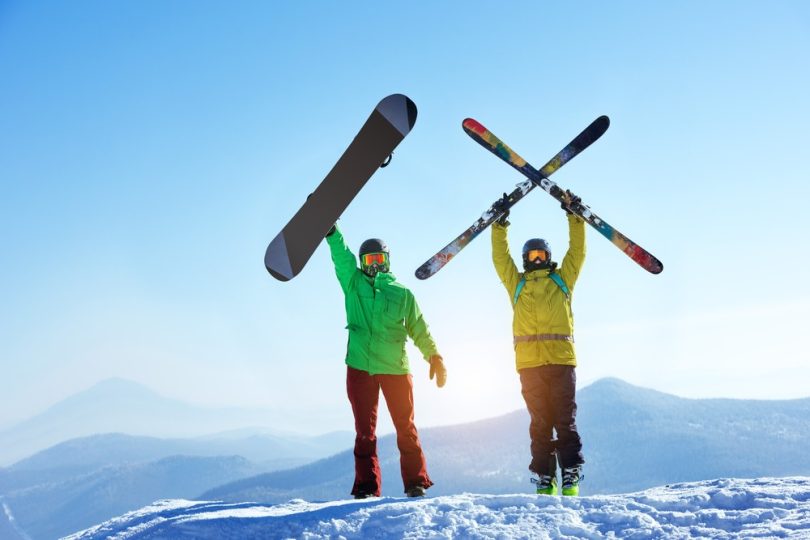
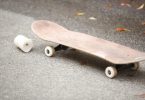
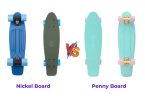
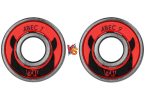
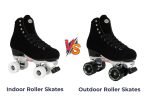
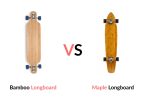
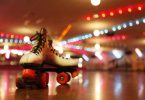

Leave a Comment